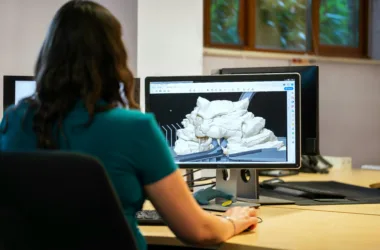Are you making mistakes in software engineering interviews like many others? It’s key to know these common errors to stand out. The field’s interviews often have coding challenges, system design, and behavioral questions. Knowing and preparing well are your best tools.
Companies want people who can explain their thoughts and how they solve problems. Being ready for these interviews not only helps you get the job. It also might mean a much bigger paycheck, especially in big tech firms. In fact, well-prepared candidates can earn way more than those looking at smaller companies.
By reading this guide, you’ll learn about usual mistakes. One is rushing through questions without asking for more details. Another is not sharing your thought process during coding tasks. Making these mistakes can really lower your chances. Ready to learn how to show your best self in interviews and dodge these errors? Let’s dive into the world of software engineer interviews.
Understanding the Software Engineer Interview Landscape
The software engineer interview landscape has changed a lot recently. Many find the interviews don’t really show what they can do. Most interviewers stick to old-style questions like explaining encapsulation or polymorphism. In fact, 78% use these common methods. Yet, only 45% of engineers think that real-life problems help them do better in interviews.
It’s important to understand what’s happening. A big 67% of interviewers judge based on strengths, not personal skills. This might cause unfair decisions in tech job interviews. Also, having different types of people interviewing can make finding the right person 62% more likely.
Soft skills are often overlooked in interviews, even though they’re critical in teamwork. Sadly, 80% of interviews miss out on this. And 91% of engineers say being good at teamwork, talking well, and adapting are key to fitting in a team. Ignoring these skills can ruin a candidate’s chances.
Unprofessional behavior can turn candidates off. About 47% say they’ve seen it, making them think less of the company. Keeping things professional can make a company 55% more inviting. Also, 74% meet interviewers who aren’t prepared, which makes for a bad experience.
Being ready is crucial, increasing the odds of a good match by 60%. Interviews that look at both tech skills and soft skills improve hire quality by 68%. Focusing on both will help in dealing with the tricky software engineer interview landscape better.
The Importance of Mindset in Interviews
Having the right mindset is key to doing well in job interviews. It can turn the stress into a helpful interview attitude. Candidates should see interviews as a chance for a friendly chat, not a scary test. This idea makes them less nervous and helps them show their best self.
Approaching the Interview as a Conversation
Thinking of an interview as a talk makes things feel easier. Before going, think about what questions you want to ask. This helps you connect better and share what you are good at. It shows you know that working together is important, especially in jobs like software development.
Managing Anxiety and Building Confidence
Feeling nervous can get in the way, but there are ways to deal with it. Being ready is crucial. Learn about the company and job to have meaningful talks. Imagining yourself doing well in the interview also builds confidence. Together, these methods help you face challenges with courage instead of fear.
Common Software Engineer Interview Mistakes
Many candidates stumble during software engineer interviews, often because of easy-to-avoid errors. These mistakes lessen their chances of getting the job. By knowing what these errors are, you can do better in a tough job market. Common errors include rambling answers, not asking for details, and not being ready for technical questions.
Avoiding Long-Winded Answers
Long answers can stray from what interviewers want to know. They might lose interest. Keep your answers short and to the point. This keeps the interview focused and shows you can talk clearly and effectively.
Failing to Ask Clarifying Questions
Not asking for more information is a mistake. It can cause misunderstandings. If you ask for details, it shows you’re interested and want to fully understand the problem. This way, you can avoid mistakes and show you pay attention to details.
Neglecting Preparation for Technical Questions
Getting ready for the technical part of the interview is key. Sadly, many don’t prepare for the specific job or company. Knowing the technical stuff that matters for the job helps a lot. Study the company’s mission and how they do things. Showing real interest helps you stand out as a well-rounded candidate. This shows off both your technical and people skills.
Communication Skills: Key for Success
In software engineering interviews, how you communicate is very important. People often think only their technical skills matter. They forget about the social skills needed to share their knowledge well. It’s key to balance your technical and social skills to get the job.
Balancing Technical Skills with Social Skills
Engineering jobs need both hard and soft skills. Just being good at technical stuff is not enough. You also need to work well with others and communicate clearly. For those who speak English as a second language, improving your English skills is important. Good communication is crucial in a global job market.
Explaining Your Thought Process
Explaining your thinking during technical tests shows you can solve problems well. It means describing your solutions clearly, using the right tech terms but avoiding too much jargon. Aim to speak in an understandable way while being correct. Taking time to explain your ideas clearly makes your answers better, especially with hard questions.
Projecting Confidence During the Interview
Showing confidence in software engineering interviews is crucial. It leaves a lasting impression on employers. Confident candidates engage better with hiring managers, increasing their success chances.
Being prepared is key to showing confidence. Assertive speaking and confident body language make a big difference. Practice coding on LeetCode and HackerRank to boost your skills and confidence. Doing mock interviews with friends or mentors helps polish your presentation and get valuable feedback.
Non-verbal cues also play a big role. Making eye contact, smiling, and open body language make you seem welcoming. Dressing right for the interview shows professionalism. Paying attention to these details shows you’re serious about the job.
Talking openly, instead of just yes or no, shows your personality. Interviewers like to see your enthusiasm and love for your work. Being ready to talk about financials and job conditions shows you’re proactive. This makes a great impression.
To sum up, getting the job you want means blending technical skills with soft skills. This combination is what impresses interviewers and lands you the position.
The Role of Body Language in Interviews
How you act in interviews can really affect what interviewers think of you. The way you present yourself can create a strong impression. It’s important to keep eye contact and have an open posture. These actions show you’re involved, sure of yourself, and easy to talk to.
Maintaining Eye Contact
Looking someone in the eye during an interview shows you’re interested and truthful. If you don’t, it might make interviewers think you’re not confident or hiding something. A study found that eye contact for 2-4 seconds makes you seem more trustworthy. Also, using eye contact well can make people 70% more engaged in what you’re saying.
Utilizing Open Posture
An open posture can change how you’re seen in an interview. Sit up straight and don’t cross your arms to show you’re professional and confident. About 78% of interviewers think good posture means you’re more engaged. Avoid too much movement to keep from distracting them. Body language is 55% of communication, so open posture really matters.
Leveraging Your Questions to Show Interest
Asking questions in interviews can really help how you are seen. Through smart questions, you show you’re really engaged and curious about the role. It helps you learn more about the company’s values, culture, and how things work. This builds a stronger bond with your interviewers.
Asking Insightful Questions About the Company
Asking about the company during interviews has many benefits. By inquiring, you show true interest. You can ask about:
- The company’s mission and vision
- Recent achievements and future goals
- Team dynamics and collaboration styles
These questions help show you’re thinking about how you’d fit in. Engaging in this way makes you seem more informed and committed.
Demonstrating Curiosity About the Role
Being curious about the role is key in interviews. You should ask about:
- Daily responsibilities and challenges
- Opportunities for growth and development
- The metrics used to measure success in the role
Asking these questions helps set clear expectations and shows you’re proactive. It demonstrates that you’re not just after any job. You want to actively contribute to the organization’s success.
Avoiding Common Pitfalls in Technical Assessments
Technical assessments are key in software engineering interviews. It’s crucial for candidates to grasp the problem before solving it. Many rush into solving without truly understanding the requirements. This often leads to mistakes and shows they can’t effectively use their technical skills.
Taking Time to Understand the Problem
Thinking things through is important when dealing with technical issues. Candidates should really understand the problem by carefully reviewing it. By dissecting the requirements, clearer and more structured answers can be made. This improves success chances in technical interviews.
About 70% of candidates don’t ask questions to understand better. Asking questions builds a strong base for solving problems.
Engaging in Problem-Solving Discussions
Talking to interviewers about challenges is helpful. It shows candidates are good communicators and work well with others. These conversations help show a candidate’s knowledge and how they adapt to solving problems.
It also gives a chance to show how past work can help the company. Many miss the chance to relate their skills to what the company needs. Being proactive in these talks helps make the interview a success.
The Interview as a Two-Way Street
The interview is a chance for both sides to check each other out. Candidates should not just be ready to be judged. They should also see if the company fits their needs and values. This way, they can find a place that suits their style and principles.
Evaluating Company Culture During the Process
Knowing a company’s culture lets you figure out if you’d fit in. When interviewing, you should ask about:
- Team dynamics and collaboration practices
- Work-life balance policies, especially with the rising trend of remote work
- Opportunities for professional growth and development
Asking these questions helps you look beyond first impressions. It’s key because the wrong fit can make you unhappy and may lead to quitting early.
Recognizing Your Leverage as a Candidate
Software engineers are in high demand, giving them an edge during interviews. Knowing this can help candidates ask deep questions and talk over terms of employment confidently.
Using this advantage means being strong about your workplace wishes. Candidates should:
- Talk about the company’s views on innovation and using new technology
- Go over how performance and progress to the next level are judged
- Get clear answers about what your job would involve
Using mutual evaluations well lets candidates choose wisely. It helps ensure a good match, leading to a rewarding career in tech.
Preparing for Behavioral Interview Questions
Getting ready for behavioral interview questions is key for those looking to shine in software engineering interviews. These questions focus on your personality, skills, and abilities. Employers use them to see how you handle real-life problems.
To prepare well, practice answering questions about teamwork, resolving disagreements, and dealing with failure. Use the STAR method—Situation, Task, Action, and Outcome. It helps share how you’ve worked under stress, learned from errors, or managed conflicts.
For effective preparation, keep in mind:
- Review common behavioral questions: Look into usual questions like “Tell me about a time you worked well within a team” or “Describe a situation where you handled conflict.” Knowing these helps you ready for various scenarios.
- Focus on specific examples: Use real stories and clear results that show your problem-solving skills and flexibility.
- Align with company values: Learn about the company’s main values and make sure your answers reflect them. This shows you fit well with the workplace culture.
Improving these preparation methods will greatly boost your confidence and speaking skills in interviews. This leads to a promising path in your software engineering career.
Conclusion
Mastering the skills for interview success is key for any software engineer in today’s job market. Knowing the best interview tips can help candidates handle the interview’s challenges well. It’s crucial to focus on preparation, communication, and understanding employer expectations.
Avoiding mistakes like long answers, not understanding questions, and not connecting with interviewers can improve your interview. Learning continuously and seeing if a company’s culture fits you is also important. This helps candidates show their best selves to interviewers who are ready to guide them.
No matter if it’s your first or tenth interview, mix your tech knowledge with good people skills. This will greatly improve your chances of getting a software engineer job. Remember, interviews are not just tests. They are a chance for both you and the company to see if you’re a good match.






